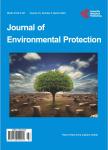Evaluation of Environmental Requirements for Sustainable Ready-Mix Concrete Production in Abu Dhabi Emirate
Evaluation of Environmental Requirements for Sustainable Ready-Mix Concrete Production in Abu Dhabi Emirate作者机构:Abu Dhabi Company for Onshore Oil Operations Abu Dhabi UAE Department of Civil Engineering American University of Sharjah Sharjah UAE RTI-International Abu Dhabi UAE
出 版 物:《Journal of Environmental Protection》 (环境保护(英文))
年 卷 期:2014年第5卷第4期
页 面:333-339页
学科分类:1002[医学-临床医学] 100214[医学-肿瘤学] 10[医学]
主 题:Sustainability Environmental Impacts Air Quality Best Management Practices
摘 要:Sustainability is the main concern for current and future construction projects in the world. In any project, attaining sustainability requires the integrity of four main elements. These elements cover economical, societal, cultural, and environmental aspects to its successful implementation and integration in an anthropogenic framework. Concrete is one of the main building materials used in current construction activities around the world;therefore, many issues pertaining to concrete long term sustainability arise. This makes issues related to environmental evaluation and assessment for the ready-mix concrete production process of vital importance. The release of particulate matter (PM) including PM10 and PM2.5 could be considered the main air pollutant that is emitted from this industrial sector;where PM can be released from different stages of ready-mix concrete production process. Another concern arising from the ready-mix concrete operations which may affect the soil and ground water quality is the spills or leaks that may occur from the storage containers used for diesel, motor oil, and chemical admixture. In 2010, Environmental Agency-Abu Dhabi (EAD) collected data pertaining to the operations of 73 ready-mix concrete facilities in the Emirate of Abu Dhabi. The data showed that the average production rate of concrete is around 250,000 m3/year, which indicates that the concrete industry is a very active industry in the Emirate. Hence, EAD has established a set of plans and requirements to minimize the environmental impacts of concrete production on the environment and public health. The environmental impact of the concrete manufacturing can be reduced by conserving use of raw material ingredients, conserving energy consumption, and following Best Management Practices (BMPs) related to readymix concrete production. In this paper, a variety of BMPs are presented for ready-mix concrete manufacturing facilities in Abu Dhabi. These BMPs cover the following areas: r



